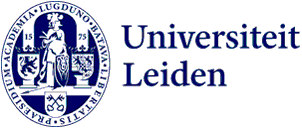Lecture | Lunch Research Seminar
Eurocentrism and Marxist Geopolitics: The Case of Iran in the Neoliberal Era
- Date
- Friday 20 May 2022
- Time
- Address
- Leiden, location TBD (if online, link sent to registered participants)
Registration: Please register at least 4 days in advance at l-peg@hum.leidenuniv.nl to receive a copy of the paper and the log in details.
Abstract: This paper claims that Marxist theories of geopolitics often treat the ‘non-West’ as a passive bystander. As one of the conceptual cores of Eurocentrism, this portrayal dismisses the role of developing countries in generating transformations in global history. Based on the philosophy of internal relations, the paper thus calls for a new historical materialist conceptualisation of geopolitics to incorporate the active agency of ‘peripheral’ actors into the analysis. To this end, I argue that (a) geopolitical confrontations and capitalist development are internally related to each other, and (b) the dialectic of rivalry and unity of interests characterises the relationship between major capitalist powers. Accordingly, in the neoliberal era, capital fractions and states, including developing countries, have utilised geopolitical confrontations to deepen or halt the internationalisation of capital. I deploy the case of Iran to support this conceptual intervention. Hence, I first show that Iranian neoliberalisation has led to the emergence of the internationally-oriented capital fraction and the reconstruction of the national capital fraction (the military-bonyad complex). I then document how the internationalist capital fraction and the military-bonyad complex have differently used the nuclear program, international sanctions and regional interventions to amplify or cease the process of integration into the global economy. Rather than being passive actors, these Iranian forces have actively exploited the dual tendencies of cooperation and rivalry between superpowers to realise their interests.
